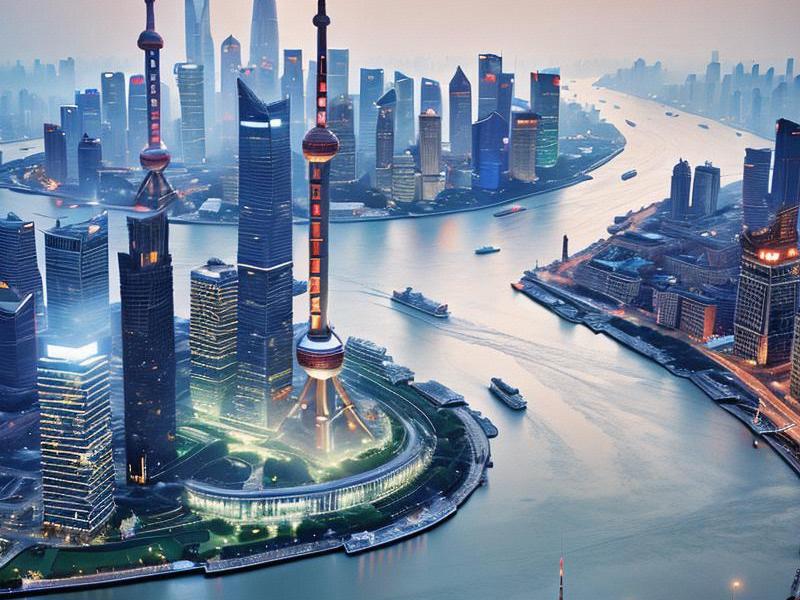
Shanghai, a city that has long been a symbol of China's rapid economic rise, is undergoing a renaissance that is reshaping its identity on the global stage. Once a modest fishing village, Shanghai has grown into one of the world's most dynamic cities, blending its rich history with cutting-edge modernity.
The city's transformation is most evident in its skyline, where ancient temples and colonial-era buildings coexist with some of the tallest skyscrapers in the world. The Bund, a historic waterfront area, offers a stunning view of the Pudong district across the Huangpu River, where the iconic Oriental Pearl Tower and the futuristic Shanghai Tower stand as testaments to the city's ambition and innovation.
Architecturally, Shanghai is a city of contrasts. The French Concession, with its tree-lined streets and charming villas, preserves the elegance of a bygone era. In contrast, Lujiazui, the financial district, is a hive of activity, home to the world's busiest container ports and a major financial center. The juxtaposition of these two worlds reflects Shanghai's ability to honor its past while embracing the future.
Culturally, Shanghai is experiencing a revival. The city has become a melting pot of cultures, with influences from China's various regions as well as international communities. This cultural diversity is reflected in the city's vibrant arts scene, from traditional Chinese opera to contemporary art galleries. The Shanghai Museum, housed in a stunning modern building designed by I.M. Pei, showcases an impressive collection of Chinese art, drawing visitors from around the globe.
上海龙凤419会所 The city's culinary scene is another aspect of its cultural renaissance. Shanghai cuisine, known for its sweet and savory flavors, is a highlight of the city's gastronomic offerings. From traditional xiaolongbao (soup dumplings) to innovative fusion dishes, Shanghai's restaurants cater to a wide range of tastes, reflecting the city's cosmopolitan character.
Economically, Shanghai remains a powerhouse. As one of China's four municipalities directly under the central government, it plays a crucial role in the country's economic development. The city is home to the Shanghai Stock Exchange, one of the largest in Asia, and is a major hub for international trade and finance. Its free trade zone has attracted numerous multinational corporations, further solidifying its position as a global economic center.
Shanghai's transformation is not without challenges. The rapid urbanization has led to issues such as housing shortages and environmental concerns. However, the city has been proactive in addressing these challenges. Initiatives like the construction of green spaces and the promotion of public transportation aim to crteeaa more sustainable urban environment.
419上海龙凤网 The city's leadership has also emphasized the importance of innovation and technology in driving its future growth. Shanghai is at the forefront of China's digital transformation, with initiatives like the Zhangjiang Hi-Tech Park fostering the development of high-tech industries. The city's smart city projects, which integrate technology into urban management, are setting new standards for urban living.
Education is another area where Shanghai is making significant strides. The city is home to some of the best universities in China, attracting students from around the world. These institutions are not only centers of academic excellence but also hubs for research and innovation, contributing to the city's intellectual capital.
Tourism is a vital part of Shanghai's economy, with millions of visitors drawn to its unique blend of history and modernity each year. The city's attractions range from the historic Yu Garden and the Yuyuan Bazaar to the futuristic Shanghai Disneyland. Events like the Shanghai International Film Festival and the Shanghai Fashion Week further enhance the city's appeal as a cultural destination.
上海娱乐联盟 Shanghai's renaissance is not just about physical transformation; it is also a story of people. The city's residents, known for their entrepreneurial spirit and adaptability, have played a crucial role in its success. The influx of talent from across China and the world has enriched the city's cultural fabric and contributed to its economic vitality.
As Shanghai continues on its journey of modern transformation, it faces both opportunities and challenges. The city's ability to balance rapid development with sustainability and inclusivity will be key to its long-term success. By honoring its rich history while embracing the future, Shanghai is setting an example for other cities around the world.
In conclusion, Shanghai's renaissance is a testament to the city's resilience and ambition. It is a city that has successfully navigated the complexities of modernization while preserving its unique identity. As Shanghai looks to the future, it remains a beacon of hope and possibility, a city that embodies the best of what China has to offer on the global stage.
